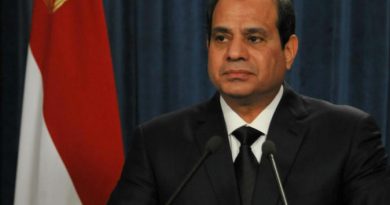Niger, Mali, and Burkina Faso Officially Exit ECOWAS Amid Regional Tensions
William Coppola
Staff Writer
As of January 29, the military governments of Mali, Burkina Faso, and Niger announced that they have officially left the Economic Community of West African States (ECOWAS). According to The New York Times, tensions between the three countries and ECOWAS began in 2023 after Nigerien officers overthrew the civilian government in a military coup. This followed a 2021 coup in Mali and a 2022 coup in Burkina Faso.
Almost immediately after the Nigerien coup, ECOWAS imposed sanctions on the three countries and threatened a military intervention to restore democratic rule in Niger. These moves had the opposite effect and brought the three countries together. BBC reports that the leaders of Mali and Burkina Faso claimed Nigeria’s response to the Nigerien coup was ‘inhumane.’ They then founded their collective security alliance, the Alliance of Sahel States (AES), Reuters explains. Ultimately Nigeria and ECOWAS did not pursue an armed intervention, and the military juntas remained in power.
Founded in 1975, ECOWAS was created to bring together the nations and economies of West Africa. However, The Associated Press reports that in recent years, its influence and popularity in the region have declined. Many West Africans no longer feel that the alliance serves their best interests and instead only furthers the agenda of its most powerful member, Nigeria. The recent split was the first time any nation has left the alliance in its 49-year history, damaging ECOWAS’s credibility in the region. BBC reports that the mood in the capitals of the AES nations was mixed. Supporters of the military governments celebrated in the streets, while more skeptical citizens were worried about the effect that leaving ECOWAS would have on their respective economies.
While tensions exist between ECOWAS and the military governments, the juntas have taken steps to maintain a relationship with the bloc. Following the procedure created by ECOWAS, each junta filed a notice informing the bloc that they would be leaving in January 2024, one year before the formal split. As the three poorest members of the bloc, complete economic isolation from ECOWAS would go against the interests of each military-led nation. The Associated Press reports that ECOWAS will ‘keep its door open’ to the countries and afford their citizens many of the benefits they enjoyed under ECOWAS, such as freedom of movement between countries and loose trade restrictions.
Many experts still believe that this split poses a significant threat to regional stability. According to the BBC, almost half of all global terrorism deaths occur in the Sahel, the region where the three countries are located. Each of these countries has battled Islamic insurgencies, often partnering with other ECOWAS nations, the United States, and France. After forming the AES, the nations cut ties with the militaries of the two Western powers. While ECOWAS has stated it is still interested in working with the three countries to combat terrorism, there are doubts as to whether this aid will materialize. Additionally, the democratic nations of ECOWAS are now in a much weaker position to combat the string of military governments that now span from West to East Africa.
In the absence of ECOWAS and Western militaries, the AES has turned instead to Russia for material support and personnel. As stated by The Associated Press, Russia has become a new partner to the AES, as it is not troubled by the three governments abandoning democratic governance. Niger, in particular, has been working to strengthen ties with the Kremlin, holding multiple meetings between Nigerian and Russian military officials. The Russian private military company, the Wagner group, has also been operating in the AES states to help combat the Islamic insurgencies, although there are reports that Wagner forces have violated human rights in the areas where they operate.
Image courtesy of Getty Images.


